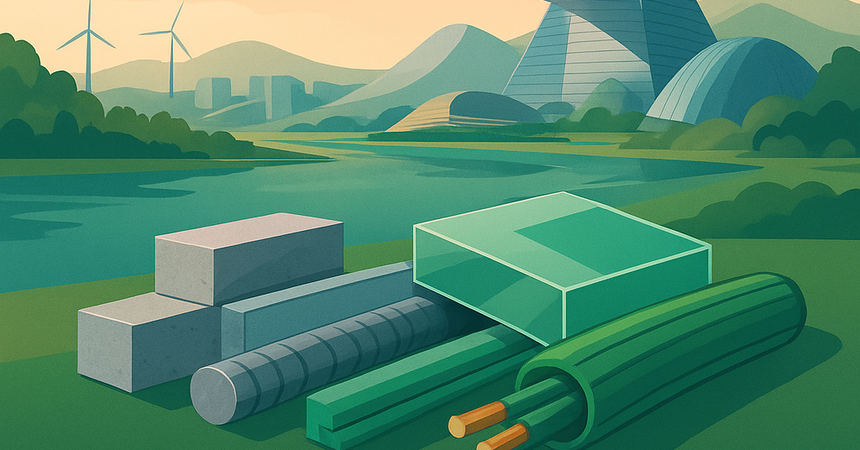NEOM is Saudi Arabia’s mega-project worth over $500 billion, already called the largest construction site of the 21st century. It combines dozens of sub-mega projects: the linear city The Line, the industrial hub Oxagon, the Trojena ski resort, and the tourist complex Sindalah. The scale of construction requires colossal volumes of concrete, steel, glass, cables, finishing materials, and engineering systems.
However, suppliers can enter NEOM’s supply chain only if their products meet strict international and national standards.
Why Certification Is Critical for Building Materials
1. International nature of the project – contractors and suppliers from around the world are involved, so requirements are unified under ISO, ASTM, EN, BS, and local SASO standards.
2. Ecology and sustainability – NEOM is being built as a “smart city of the future” with net-zero carbon emissions. All materials must be energy-efficient and environmentally safe.
3. Safety and durability – structures must withstand extreme heat, dust storms, and seismic activity.
4. Innovation – new types of concrete, glass, steel, and composites are used, requiring additional testing and certification.
Key Standards and Certificates for Suppliers
1. International quality standards- ISO 9001 – quality management system.
- ISO 14001 – environmental management.
- ISO 45001 – occupational health and safety.
- ISO 50001 – energy efficiency.
- SASO CoC (Certificate of Conformity) – main approval for importing building materials.
- SASO Quality Mark – advanced certification level for government projects.
- ASTM – concrete, metal, cables, coatings.
- EN – glass, cement, fire-resistant materials.
- BS – engineering systems, cables, building elements.
- LEED – sustainability and eco-friendliness of buildings and materials.
- BREEAM – energy efficiency and sustainable construction.
- Mandatory testing for fire resistance, heat resistance, moisture protection, and sandstorm endurance.
Example Requirements by Category
- Concrete – ASTM C94, BS EN 206, resistance to aggressive environments and high temperature.
- Steel and reinforcement – ASTM A615/A706, corrosion resistance requirements.
- Glass – EN 12150 (tempered glass), EN 1279 (insulating glass units), mandatory impact resistance tests.
- Cables and electrical equipment – SASO + IEC + BS, mandatory fire safety certification.
- Finishing materials – toxicity, fire safety, and eco-compliance (VOC tests).
Steps to Enter NEOM’s Building Materials Market
- Requirement analysis for the specific material (ISO, ASTM, SASO, etc.).
- Product testing in accredited laboratories.
- Obtaining ISO, ASTM, SASO, LEED/BREEAM certifications.
- Registration in the SABER system for CoC issuance.
- Confirmation of each shipment with a Shipment CoC.
Risks of Non-Certification
- Rejection from NEOM tenders.
- Cargo delays at Saudi customs.
- Fines and extra costs for rework.
- Reputational losses in the international market.
Advantages for Certified Suppliers
- Access to contracts within the multi-billion-dollar NEOM project.
- Entry into the Saudi and GCC markets.
- Long-term partnerships with leading global developers.
- Increased competitiveness on a global scale.
Conclusion
NEOM sets new standards for the global construction industry. For building material suppliers, certification is not a formality but a mandatory requirement. Only companies that prove the quality and sustainability of their products under ISO, ASTM, SASO, and green standards will be able to participate in the largest construction project of the 21st century.Contact WorldWideBridge – we will handle all stages of certification and open access to NEOM construction contracts.
